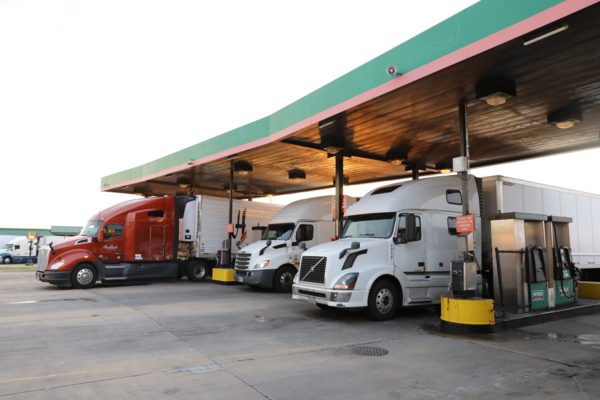I’ve written before about why biodiesel makes sense for your operations, but let’s take it back a step further to discuss how renewable fuels in general are helpful for independent truck stops.
You’re well aware that setting yourself apart from your competition is important — especially if you don’t have some of the same resources a larger counterpart may have. If you don’t have what drivers want, they can usually go just a little further down the road to find it.
Here are a few reasons why adding renewable fuel options to your lineup is a great way to stand out and attract a wider audience.
The Sustainability Focus
Most of us by now have heard of California’s Low Carbon Fuel Standard, which seeks to lower greenhouse gases in the state, and many other states and municipalities are implementing clean air policies too. But did you know that companies are establishing private sector policies as well?
A recent study on sustainable supply chains found that 81% of companies are more focused on sustainability today than they were three years ago, and 70% of companies take it into account on their RFPs. To put it simply: Your customers have emission goals and targets to hit — and so do their customers — and renewable fuels like biodiesel are a great way to help them do that.
Biodiesel has been shown to reduce lifecycle greenhouse gas emissions by up to 86% compared to ULSD.1 And renewable diesel reduces total hydrocarbons by more than 10%, particulate matter by nearly 40%, carbon monoxide by 25% and nitrogen oxides by 15% compared to ULSD.2 Your customers will appreciate you having these options available to them.
Fuel Diversity Alongside Diesel Domination
Even though electric vehicles may be the shiny new object that some people are buzzing about, those of us who understand the intricacies of the trucking industry know that diesel vehicles will continue to dominate for several years while those technologies get ironed out.
Plus, passenger vehicle manufacturers are increasingly introducing diesel versions of their most popular models. In fact, federal data predicts a 14% increase in registered diesel vehicles by 2035.3 Because renewable diesel and biodiesel blends are drop-in solutions, drivers can take advantage of the emissions and cost reductions that come with these alternative fuels.
As more vehicles support different fuel options, your customers want to know that you can deliver on what they need. And when you have what drivers need at the pump, they may also be more likely to spend money inside. Plus, it’s smart to diversify in the long run so you aren’t stuck when fuel demands change.
The Biodiesel Tax Credit and RINs
Biodiesel is often less expensive than petroleum diesel throughout the U.S. thanks to the value of Renewable Identification Numbers (RINs). Additionally, the higher the blend of biodiesel, the greater the potential for savings is because you’re getting more of the economic advantage of biodiesel. For example, you’ll often see B5 (that’s 5% biodiesel and 95% petroleum diesel) at one price, B11 at a lower price and B20 even lower — and all three are lower than the price of ULSD.
On top of that, the Biodiesel Tax Credit is worth $1 per gallon to anyone blending biodiesel into petroleum diesel. Even if you don’t blend your own, the savings can filter down through the entire supply chain — meaning your customers will be happy about it too. You know that customers will go across the street to save a penny or two per gallon, so if a fuel like biodiesel allows you to lower your prices while maintaining your margins, that’s something that can set you apart from the competition.
The tax credit is now in effect through at least 2022, so you can be confident biodiesel is a worthwhile investment. That confidence, plus other potential grants and loans related to renewable fuels, may make a capital investment like your own blending system worthwhile.
As always, I recommend doing your own research and talking with your suppliers and customers. If you’re interested in offering more renewable fuel options at your locations, I would be happy to discuss the possibilities with you: steve.klein@regi.com.
// Renewable Energy Group is leading the energy industry’s transition to sustainability by transforming renewable resources into high-quality, cleaner fuels. REG is an international producer of cleaner fuels and North America’s largest producer of biodiesel. REG utilizes an integrated procurement, distribution and logistics network to operate 13 biorefineries. REG is meeting the growing global demand for lower-carbon fuels and leading the way to a more sustainable future. Learn more about Renewable Energy Group.
Subscribe to Updates
NATSO provides a breadth of information created to strengthen travel plazas’ ability to meet the needs of the travelling public in an age of disruption. This includes knowledge filled blog posts, articles and publications. If you would like to receive a digest of blog post and articles directly in your inbox, please provide your name, email and the frequency of the updates you want to receive the email digest.


